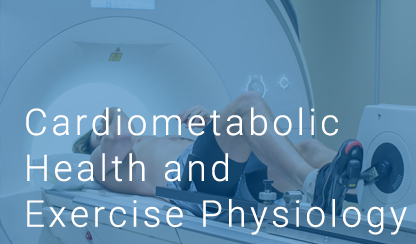What is cardiotoxicity?
Cardiotoxicity is a broad term used to describe damage to the heart caused by harmful substances, including medications or treatments, particularly those used to treat cancer. When something is toxic to the heart, it can affect how well the heart functions, leading to a variety of health problems.
How does cardiotoxicity affect the heart?
The heart is a muscle that pumps blood around the body, providing oxygen and nutrients to every organ. Cardiotoxicity occurs when something interferes with the heart’s ability to do its job. This can lead to conditions like heart failure, where the heart doesn’t pump blood as efficiently as it should, or arrhythmias, which are irregular heartbeats. It can also affect blood vessels, causing atherosclerosis and coronary artery disease.
Certain treatments, including chemotherapy drugs used to fight cancer, can sometimes cause direct and indirect harm to the heart. While these drugs are effective at killing cancer cells, they can also impact healthy heart cells.
How common is cardiotoxicity?
It’s difficult to say how many people who undergo certain types of cancer treatments may experience some level of heart damage, but it is estimated to be about 20 per cent of people who were treated for cancer as adults. The risk increases depending on factors such as the type of treatment, the dosage, and whether the person already has a history of heart disease.
However, cardiotoxicity is not only linked to cancer treatments. Some other medications used to treat diseases like HIV and autoimmune conditions have also been linked to heart issues. Even environmental toxins like alcohol, smoking, or exposure to heavy metals can be cardiotoxic.
Who does cardiotoxicity impact?
People undergoing cancer treatment, particularly with chemotherapy drugs, including anthracyclines or targeted therapies, and those who have radiation therapy to the chest, are at the highest risk for cardiotoxicity. While it’s difficult to determine the exact rate of cardiotoxicity in adults who had cancer treatment as an adult, it is estimated that up to 20 per cent of this population may develop heart problems, with between 7 per cent and 10 per cent having cardiomyopathy or heart failure in subsequent years. Adults treated with chemotherapy as children are at a greater risk of premature development of heart failure.
How can cardiotoxicity be prevented?
Preventing cardiotoxicity starts with awareness. Doctors carefully monitor people who are undergoing treatments known to cause heart problems. They may use tests like echocardiograms, which show how well the heart is functioning, cardiac magnetic resonance imaging, cardiac stress tests, or blood tests to check for signs of stress on the heart.
If there are signs of cardiotoxicity or a patient has a higher risk, doctors may prescribe medications to help protect the heart, such as beta-blockers or ACE inhibitors, which can lower blood pressure and reduce the heart's workload. There are options to adjust the dosage of the medication or switch to a different treatment that is less likely to harm the heart, but fortunately, these are rarely needed.
Exercise has been shown to be cardioprotective. For those with a higher risk of cardiovascular disease, adopting a healthy lifestyle could also mitigate cardiotoxic risk. If someone does develop heart damage, there are treatments available to manage symptoms and improve heart function.
What are the Baker Institute and others doing about cardiotoxicity?
Cardio-oncology is a growing field of medicine focussed on managing the heart health of cancer patients. Specialists in this area work to ensure that patients can receive life-saving cancer treatments without putting their hearts at risk, and optimise cardiac care during survivorship. The Baker Institute-led studies SUCCOUR and SUCCOUR-MRI have identified new strategies for monitoring for the most sensitive markers of change, that can trigger the use of protective therapy.
Researchers are also actively studying cardiotoxicity to better understand how and why it happens, and to find ways to prevent or reduce the damage. There is ongoing work to develop cancer treatments that are less harmful to the heart, as well as to identify biomarkers, which are measurable substances in the body, that could help doctors predict who is at greater risk.
Through Baker Institute-led studies like BREXIT and ALLO-active, our researchers are exploring innovative approaches to protect the heart during and following cancer therapy.
A key focus of this research examines how exercise during chemotherapy might help protect the heart from damage. By having patients engage in structured exercise while undergoing treatment, we are investigating whether exercise can help strengthen the heart and reduce the risk of developing cardiotoxicity.
This research could potentially transform how we approach cancer treatment by adding protective strategies that safeguard long-term heart health.
Most of this work has focussed on the time of chemotherapy, but risk continues for years after therapy. REDEEM and REDEEM-CAD are cancer survivorship studies, where participants are more than five years post-cancer treatment. These studies, for which we are actively recruiting participants, investigate levels of risk in cancer survivors, and strategies to reduce risk, including heart medications and exercise.





